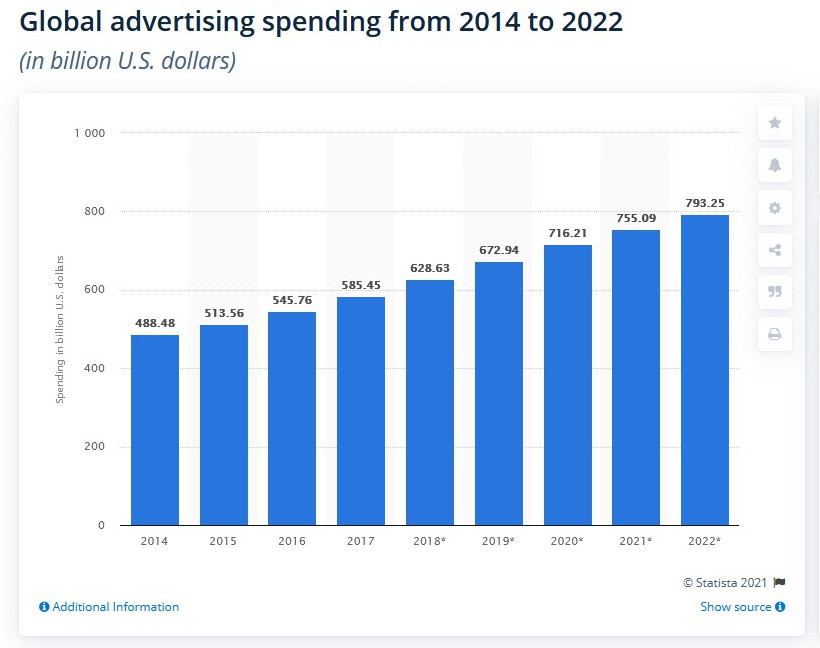The top two questions we hear from people who want to make money as a freelance writer are:
- Is this opportunity legit?
- If it is, how will I know if I can do it?
Thankfully, we can put your mind at ease on both counts…
Because yes, it’s legit! We literally have hundreds of writer success stories — real-life people who are living out their writing dreams and enjoying the freedom and income that goes along with it.
And yes, you can do it! Successful writers come from all walks of life, and they have countless different backgrounds and reasons why they became writers.
What’s important is finding your reason for becoming a writer, and why you want to build a professional writing career.
On this page, we’ll explore a specific industry where you can make good money as a writer, why this type of writing is such a great opportunity, and how to pinpoint your individual writing goals for launching a successful writing career.
- What Type of Writing Should You Do?
- Yes, You Can Make Money as a Writer!
- Our “3-Part Goal Statement” Strategy for Setting Your Writing and Income Goals
- Determine Your Priorities
- Lay Out Your Money Goals
- Set a Deadline
- Put It All Together
- Why Goals Lead to Success
- The Truth Behind the Barefoot Writer Community
What Type of Writing Should You Do?
Perhaps you’ve already looked into writing novels, non-fiction books, or magazine and newspaper articles for a living.
But a closer look at the potential income from writing books or articles puts off many would-be writers.
It’s no secret that only a handful of fiction and non-fiction books become bestsellers. The majority of published books make very little money for their authors.
And the magazine and newspaper industries in general are shrinking as more and more people turn to the internet to find the information they need.
So, does that mean there are no writing opportunities left for an aspiring writer?
Absolutely not!
The kind of writing that Barefoot Writers do is in high demand, and that demand is only growing. This also keeps our average fees much higher than what most authors make on books or articles.
The type of writing I’m talking about is called copywriting.
The term copywriting refers to writing for businesses. It includes writing everything a business may need to communicate with its potential and existing customers.
Copywriters write all sorts of digital and printed materials, such as web pages, emails, social media posts, business reports, and sales packages.
I’ll admit… I thought copywriting sounded pretty dull when I first heard about it.
But I soon realized copywriting is a lot more than just writing ads or boring reports. In fact, copywriting is a large portion of everything you read or see on a daily basis.
That blog post you read on how to cook perfect spaghetti? It was written by a copywriter.
The video you watched on how to train your dog? Also written by a copywriter.
The free report you downloaded on improving your focus and productivity? You guessed it – a copywriter wrote that.
The white paper that showcases that brand new accounting software? Yup… written by a copywriter.
Gone are the days when a business could just run a newspaper or TV ad and hope that potential customers noticed them.
Modern advertising is all about connecting with potential customers in a meaningful way, and this is where copywriters come in.
Many businesses pay copywriters top dollar to write all the materials they need to promote their businesses.
For example, these are some projects you might work on as a copywriter, and their average fees:
- Promotional emails: $100-$1,000 per email
- Blog posts: $50-$800 per post
- Short (1-5 minute) video scripts: $500-$1,500+ per script
- Direct-mail sales packages: $1,500-$5,000+ per package
- Managing a business’s social media account: $1,000-$2,000 per month
- Ghostwriting a book: $5,000-$10,000+
And this list only scratches the surface of all the different types of writing that businesses need, and how much they’re willing to pay copywriters who can do these projects at a high standard.
Yes, You Can Make Money as a Writer!
Is it possible for anyone to make high fees as a copywriter?
And is there enough work to go around?
A resounding yes on both points!
I’ve been a freelance writer for over 14 years, and I’ve only seen the demand for what I do increase in that time, as well as the earning potential.
Admittedly, I didn’t make particularly high fees in my first year as a writer. Or my second.
But once I gained some experience and kept working to improve my skills, I hit six-figures in my third year as a professional writer and haven’t made less than that since.
And I’m not the only one by far. A growing number of writers around the world have achieved good, stable incomes through copywriting.
For ample proof of this fact, you can access our archives of interviews with Barefoot Writers who’ve turned their hopes into reality. Or you can check out the loads of case studies profiling successful writers from our publisher, AWAI.
But to get back to why copywriting is such a great opportunity for writers… let’s take a brief look at how big the industry really is.
This graph from Statistica shows the global expenditure on advertising since 2014:
Notice how the global amount spent on advertising has nearly doubled in only nine years?
This includes all the forms of written advertising I’ve been talking about, like traditional print advertising and direct mail packages, as well as everything online, from web pages, to social media posts, to promotional emails.
All these materials need to be written by someone, which means that as advertising spending rises, so does the demand for skilled writers.
Also, it’s no secret that 2020 saw a significant increase in online business.
According to a McKinsey Global Survey of executives, many businesses shifted to providing more services online in 2020 than ever before, including product sales, customer support, online information, and other services.
As you can see, the number of digital interactions with customers increased significantly in the first half of 2020. The executives surveyed felt these changes were here to stay, and they planned to continue investing in the online and digital aspects of their businesses.
This means the demand for online content will only continue to increase.
So, whether you’re interested in print advertising, or the online world, I can recommend diving into a copywriting career with complete confidence.
Our “3-Part Goal Statement” Strategy for Setting Your Writing and Income Goals
Most people agree on one thing:
If you want to get somewhere in life, you have to know where you’re going.
Makes sense, right?
That’s why, in the copywriting world, we’re huge fans of goals.
Because to get anywhere as a truly successful writer, you need to know what it is you want to accomplish… or change… or achieve.
A really important piece to that puzzle is aiming your efforts in one direction. We believe in a strategy that starts with a “three-part goal statement.” Here’s how to make one…
1. Determine Your Priorities
Why do you want to get paid to write in the first place?
Are you looking to change careers into one that’s more gratifying?
Would you like more control over your time and income?
Do you have dreams that a writing income will help achieve?
Writers have all sorts of different reasons for pursuing the writer’s life. But knowing your own reasons, and the kind of life you want to create through writing, will help you stay motivated and on track.
Once you’ve determined the core reason why you want to become a writer, write it down.
2. Set Your Money Goals
It’s also important to know how much you want or need to earn from writing.
Are you looking to replace your current full-time income?
Do you just want some extra cash flow on the side?
Are you wanting to pay off a certain amount of debt, or save for retirement?
Pick a specific number that will help you achieve your goal, whether it’s a lump sum you need to make, or a yearly income. It doesn’t have to be perfect yet, just choose a number that makes sense. You can always adjust it later as you refine your goals.
Whatever the number is, write it down.
3. Set a Deadline
Pick a date by which you want to achieve your writing and income goal.
It could be six months from now. It could be in three years. Or it could be by New Year’s.
There are no wrong answers here!
Whatever your deadline is, write it down.
4. Put It All Together
Now that you have the three core elements described above, put them all together into one concrete goal statement.
It might sound something like this…
I want to leave my job to write full-time for a living, earning $90,000 a year, exactly two years from now.
I want to pick up part-time writing work I can do on the weekends to bring in $10,000 a year so I can take more vacations, and I want to achieve this by the end of this year.
I want to enhance my retirement by writing in my spare time and adding an extra $30,000 to my accounts in 12 months.
Once you have your goal statement, make it part of your daily routine. Tape it to the mirror in your bathroom, or to the side of your computer screen.
The point is to make sure you see it, and think about it, at least once a day, every day.
Why Goals Lead to Success
You likely came to this page wondering if you can ever make money as a writer… so let’s talk about why we kicked things off by setting some goals.
See, once you have your goals in place, you’ve learned the basics of persuasive writing, and you’re ready to get started as a writer… you’ll already know more than most people when it comes to copywriting.
And because of your goals, you’ll have something to keep you anchored and moving forward beyond any initial curiosity you may have had. You’ll stay motivated and you’ll keep learning.
Right there — that’s the key.
Moving forward… continual learning… those are the things that build your writing muscles and, in turn, your confidence and income potential.
And if you’re wondering where to start when it comes to setting your writing fees, check out our article on what to charge as a beginner freelance writer.
The Truth Behind the Barefoot Writing Community
We explain here how to get started as a writer— by getting good at the art of writing, picking a writing specialty or niche to focus on, and then building your support system and your online presence.
Beyond that? It all comes down to simple practice.
Because we have to be honest… you’ll never know everything there is to know about the paid writing world. None of us will. The only way you’ll improve your writing skills and knowledge is to write consistently and keep learning as you go.
A great part of being a Barefoot Writer is that a lot of your work is measurable. Meaning that when you put a piece of copy out with a call to action — looking for buyers, subscribers, donors, or anything else — you can measure your results.
You can tell your client, “We had 3,000 people opt in to your mailing list over the past month once we changed your website copy!”
Or “Your sales page brought in $45,600 worth of orders over two days!”
All of which tells you your copy is working. People are responding.
But what if you had only 500 people subscribe to that mailing list in a month’s time? Does that make you a bad writer?
Nope. It just means you need to go back to the drawing board and try, try again.
The same is true if that sales page drops to only $400 worth of orders. Go back and write it again. Try to up that response rate.
You see, our Barefoot Writing Community isn’t made up of people who were born writers. We didn’t take up our pens at age three and we haven’t been scribbling out novellas since our teens.
Not at all.
The truth is, Barefoot Writers come in all forms. Our community is made up of city folks, country folks, and even a few who run their own farms.
Some live internationally, some travel full-time. Some think writing a 20-page sales letter is the height of excitement; some balk at the idea and would much rather get paid to write tweets.
The one thing we all have in common is that we share a love of writing, and we’ve taken the time to learn how to write persuasively for businesses, service providers, and organizations.
And we get paid well to do that writing.
We’re not a bunch of writer stereotypes. We don’t mope around while chain-smoking in all-black clothing.
We don’t all love liquor and grammar and cats.
And we certainly don’t write the same things for the same purposes.
Our goals are wide and varied. Our interests are even wider. And our skills are at all different levels, though we share one communal aspiration, which is to constantly get better.
So, take some time to read those interviews with working Barefoot Writers. Then put together your goal statement.
And from there, start studying the art of writing copy. Try to learn something new — or at the very least, write a little bit — every day.





